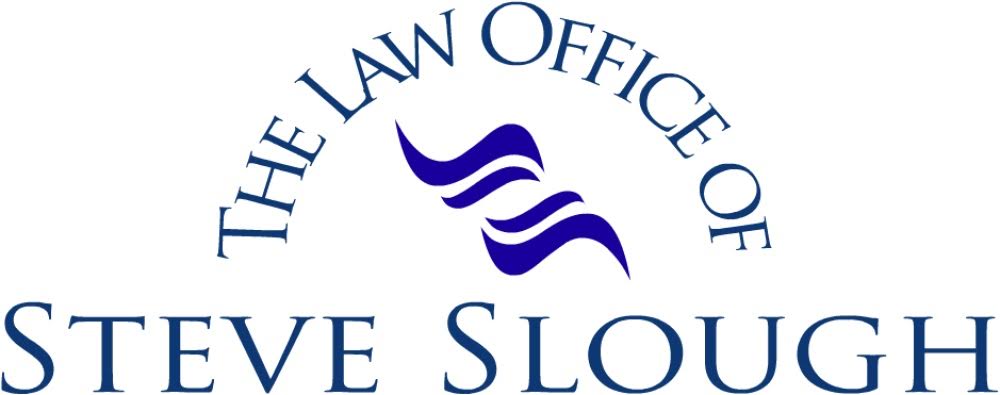If you suspect that your loved one isn’t receiving proper care in a nursing home or care home facility, it's common to experience significant stress, worry, and uncertainty. Unfortunately, nursing home negligence does occur, and it can take many forms, including physical harm, emotional abuse, improper medical treatment, medication errors, or substandard care.

What to Do When Hit by an Uninsured/Under-Insured Motorist
It’s a scenario that all drivers dread—being involved in a car accident that's not your fault, only to find that the at-fault driver is either uninsured or doesn’t have enough insurance to cover your losses. In these frustrating and often stressful situations, knowing how to move forward is critical.
Our team at The Law Office of Steve Slough can help you through the complex and often misunderstood process of dealing with uninsured and underinsured motorists. We have the knowledge, experience, and resources to cater to your best interests.
Required Insurance Coverage in Missouri
In the United States, auto insurance laws are a mix of requirements, and Missouri is one state that has its own set of mandatory coverage. The purpose is to protect drivers and their passengers when the unexpected happens. However, the obligation to have insurance doesn't prevent accidents from occurring but does ensure the availability of resources to assist affected parties.
Being informed about state-mandated coverage goes a long way in understanding what financial protections are available in the event of an accident. Missouri’s minimum requirements are set at $25,000 per person for bodily injury, $50,000 per accident for bodily injury, and $25,000 per accident for property damage. These figures represent the financial ceiling that your insurance will cover, with each component designed to address specific injury and damage types.
Missouri operates on a fault-based system, meaning that the person found at fault in an accident is responsible for the financial fallout. This also means if you're hit by an uninsured motorist, you'll likely be dealing with your own insurance company to recover damages. Comparatively, no-fault states mandate that each driver’s insurance policy should cover their own injuries and damage, regardless of who caused the accident.
Explaining the Uninsured/Underinsured Motorist Provision
The uninsured/underinsured motorist (UM/UIM) provision under a car insurance policy is a crucial clause that steps in to fill the financial gap left by an at-fault driver without adequate insurance. This critical addition safeguards you against the financial havoc an uninsured or underinsured driver could unintentionally cause.
The complexities of UM/UIM coverage can be overwhelming, but the basics are straightforward. If you’ve carefully added this provision to your policy, it can potentially cover vehicle or property damage, medical expenses, and even loss of income resulting from the accident.
Filing an Uninsured or Underinsured Motorist Claim
Once the devastating realization that the other party lacks sufficient coverage dawns, filing a claim becomes the next logical step. This process isn't dissimilar from filing a standard car accident claim with your own insurer. It's essential to present evidence of the uninsured or underinsured party's negligence and the extent of your own losses.
Steps to Take if You Were Hit by an Uninsured/Under-Insured Motorist
Navigating the aftermath of a collision with an uninsured driver can present complex challenges. Taking the necessary steps early on will best position you to handle these obstacles.
Immediate Response to the Accident: In the immediate aftermath of a collision, your safety and those around you are paramount. Administering first aid, calling emergency services, and documenting the scene as much as possible are the first actions to take.
Initiate the Claims Process Promptly: Reporting the accident to your insurer as soon as possible is crucial. Be prepared to offer details, and if you have UM/UIM coverage, you should find out the specifics of what it covers in a situation where the other party can’t compensate you properly.
Determining the Extent of Damages: Gather and maintain thorough records of any and all expenses resulting from the accident, including medical bills, lost wages, property damage, and potential long-term financial setbacks. These records are evidence of your claim and can greatly help in the negotiation phase.
Pursuing Legal Options: In more severe cases, legal action may be necessary to recoup losses from an uninsured or underinsured motorist. However, pursuing a lawsuit has its own set of considerations, including the financial ability of the other party to pay.
Leverage Professional Support: The overwhelming nature of accidents can cloud judgment and impede upon one's ability to fully advocate for themselves. In such cases, seeking legal counsel, particularly from a car accident attorney well-versed in uninsured motorist claims, can significantly bolster your position.
Dealing With an At-Fault Driver
In some instances, filing a claim against an uninsured driver’s assets or income may prove futile. Without insurance, there are often no immediate resources available within the driver’s policy to fulfill your claim. Understanding this financial reality is pivotal in setting your expectations for recovery.
Non-insurance options might include seeking damages from third parties, exploring government-funded relief programs, or even utilizing your own uninsured motorist coverage to the fullest extent possible.
In the event that your own insurer handles your UM/UIM claim unfairly, you may have grounds for a bad faith claim. If it’s determined that the insurance company did not act in your best interest, they could be compelled to offer the full coverage or face additional penalties in court.
Pursuing a lawsuit against a driver without adequate insurance warrants careful consideration. Ensuring the other party has the financial means to satisfy a judgment is pivotal.
Proactive Measures for the Future
Being the victim of an accident with an uninsured motorist educates you on the potential financial risks every driver faces. In response, it’s wise to reevaluate your own insurance coverage regularly, explore policy add-ons, and understand the nuances of UM/UIM coverage.
Regular Insurance Assessments and Adjustments: By staying abreast of changes in your financial situation, vehicle value, or new legal requirements, regular insurance evaluations are instrumental. These reflections can lead to coverage adjustments that better suit your evolving needs.
The Role of Legal Consultation: Partnering with a legal professional can shed light on complex insurance terms, policy jargon, and the legalities of car accident compensation. Lawyers who specialize in these cases can map out the best path forward, setting you up for success in potential future claims.
The Importance of Documentation: In the event of any accident, comprehensive documentation is your strongest ally. Collecting and maintaining all pertinent information—such as accident reports, medical records, and correspondence with your insurance company—will fortify your claim and support your rights as an accident victim.
Compassionate Legal Assistance
It's evident that an uninsured or underinsured motorist incident can be overwhelming. However, with vigilance, preparation, and the right resources at your disposal, you can traverse these murky waters with confidence. Establishing a solid understanding of your rights and available protections is the first step in reclaiming control after such an alarming event.
In the end, remember that being informed is your most potent weapon when dealing with unexpected events like a car accident. By peeling back the layers of uninsured motorist scenarios, you strengthen your ability to proactively address any future occurrences. And while accidents may be unpredictable, your readiness and knowledge can bring some measure of predictability to their aftermath.
RECENT POSTS
When a product fails to perform safely or as intended, the consequences can be devastating. Victims may face serious injuries, permanent disabilities, or overwhelming financial losses, and defective product claims often involve detailed technical, scientific, and medical details that go far beyond ordinary knowledge.
Medical malpractice can be one of the most stressful and emotional experiences a person faces. When you or a loved one suffers harm due to a medical professional's mistake, the emotional and financial impact can be overwhelming. Filing a medical malpractice claim requires careful preparation and attention to detail.




